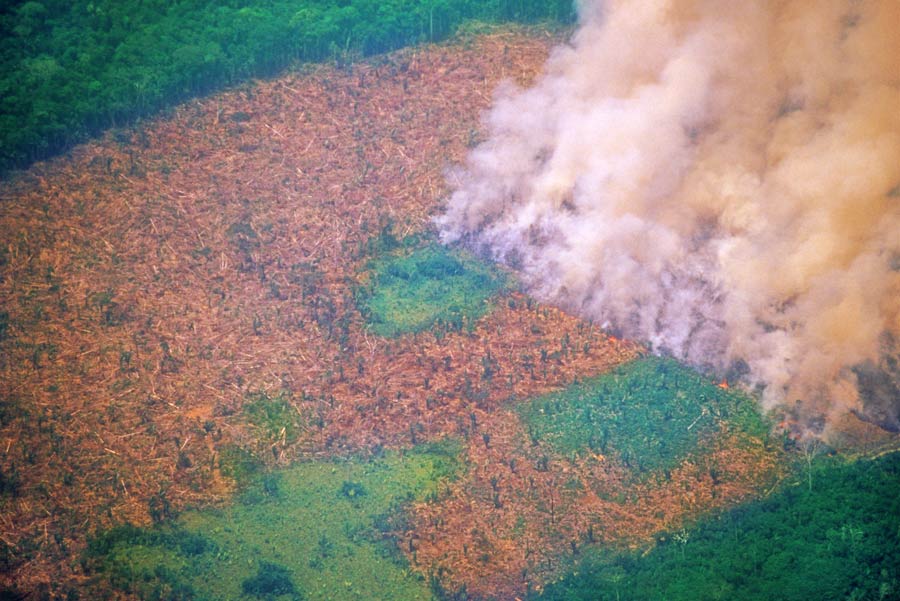Cows, burgers, and the fires in the Amazon intertwine in a complex narrative that unveils a profound ethical dilemma regarding our dietary choices and environmental stewardship. As the world grapples with climate change, deforestation, and biodiversity loss, an urgent reevaluation of our eating habits emerges, demanding not only an acknowledgment of the consequences of our diets but also a transformative shift in perspective. This discourse aims to elucidate the implications of consuming beef, particularly in the context of the Amazon rainforest’s destruction, highlighting the lessons embedded within Bahai teachings that can inspire a more sustainable future.
The Amazon rainforest, often referred to as the “lungs of the planet,” plays an indispensable role in regulating Earth’s climate and preserving biodiversity. However, rampant deforestation for agricultural purposes, particularly cattle ranching, is leading to irreversible damage. It is estimated that cattle ranching accounts for approximately 80% of deforestation in the Amazon. This alarming statistic prompts an inquiry into the moral implications of our dietary preferences and the repercussions of an insatiable appetite for beef. The contrast between personal convenience and collective responsibility beckons us to reconsider our choices.
Bahai teachings emphasize the interconnectedness of humanity and the natural world. Drawing from these principles, it becomes clear that the individual act of consuming beef reverberates throughout the tapestry of global ecosystems. Each burger consumed signifies a step further into a cycle of deforestation, species extinction, and climate degradation. The Bahai perspective champions a balanced approach to life—encouraging individuals to consider not only their immediate desires but also the broader impact of their actions on society and the environment.
The visceral image of burgers sizzling on a grill may evoke feelings of pleasure and satisfaction, but obscured beneath this culinary delight lies a grim reality. The land cleared to rear livestock erases habitats, displaces indigenous communities, and contributes significantly to greenhouse gas emissions. This connection provides fertile ground for reflection. What costs are we willing to pay for a fleeting moment of gastronomic gratification? Bahai teachings urge humanity not to prioritize immediate gratification at the expense of ecological integrity.
Additionally, the ethical considerations surrounding animal suffering must be examined. The conditions under which livestock are bred and raised often lead to inhumane treatment, revealing the moral quandary of consuming products that stem from suffering. Bahai principles advocate for the humane and compassionate treatment of all living beings, prompting a critical look at our choices. The question arises: can one reconcile the joy derived from a meal with the suffering inflicted upon innocent creatures?
The Bahai perspective promotes the notion of unity—a concept that transcends individualism and urges global consciousness. The widespread environmental degradation tied to cattle ranching is not isolated; it affects all human beings, emphasizing the need for collective action and solidarity. Transitioning towards a plant-based diet could serve as a powerful expression of this unity, potentially reducing the demand for beef while alleviating pressure on the Amazon and other vital ecosystems. The shift to a more sustainable diet aligns with Bahai teachings that stress the importance of making decisions grounded in the betterment of the global community.
Migrating our diets away from beef comes with its own set of challenges, particularly in regions where meat consumption is deeply ingrained in cultural traditions. Such shifts necessitate not only individual resolve but also community-wide changes in agricultural practices, food education, and policy. The Bahai community has shown resilience in implementing changes that favor sustainable practices, promoting a vision wherein communities rally together to forge a future that honors both humanity’s diverse cultures and the planet’s ecological needs.
Engaging with local agricultural initiatives that promote plant-based options can foster a more profound understanding of food sources and their global implications. Educating oneself about local farming practices, seeking out organic produce, and supporting ethical agriculture are enduring steps that align with Bahai teachings on fostering positive change. Through conscious consumerism, individuals can challenge the status quo, propelling both individual and societal transformation.
Furthermore, the role of education cannot be overstated. Comprehensive education addressing environmental issues, the ethics of consumption, and sustainable agricultural practices is pivotal in nurturing an informed populace. The Bahai approach to learning emphasizes the importance of knowledge as a tool for change. By disseminating information about the consequences of livestock farming and the potential of plant-based diets, communities can stimulate meaningful discussions that inspire individuals to rethink and restructure their eating habits.
To encapsulate, the narrative surrounding cows, burgers, and the fires raging in the Amazon serves as a poignant reminder of the intersection between our dietary choices and environmental health. It challenges us to confront the stark realities of our consumption patterns through the lens of Bahai teachings that advocate for unity, compassion, and responsibility. Individuals and communities must strive for a paradigm shift—embracing dietary practices that honor both personal well-being and the sanctity of the natural world. The path toward sustainability may be arduous, but the potential for a compassionate and ecologically sound future lies in our collective hands. It is time to reconsider the price of our diets and cultivate a legacy that safeguards the Earth for generations to come.
